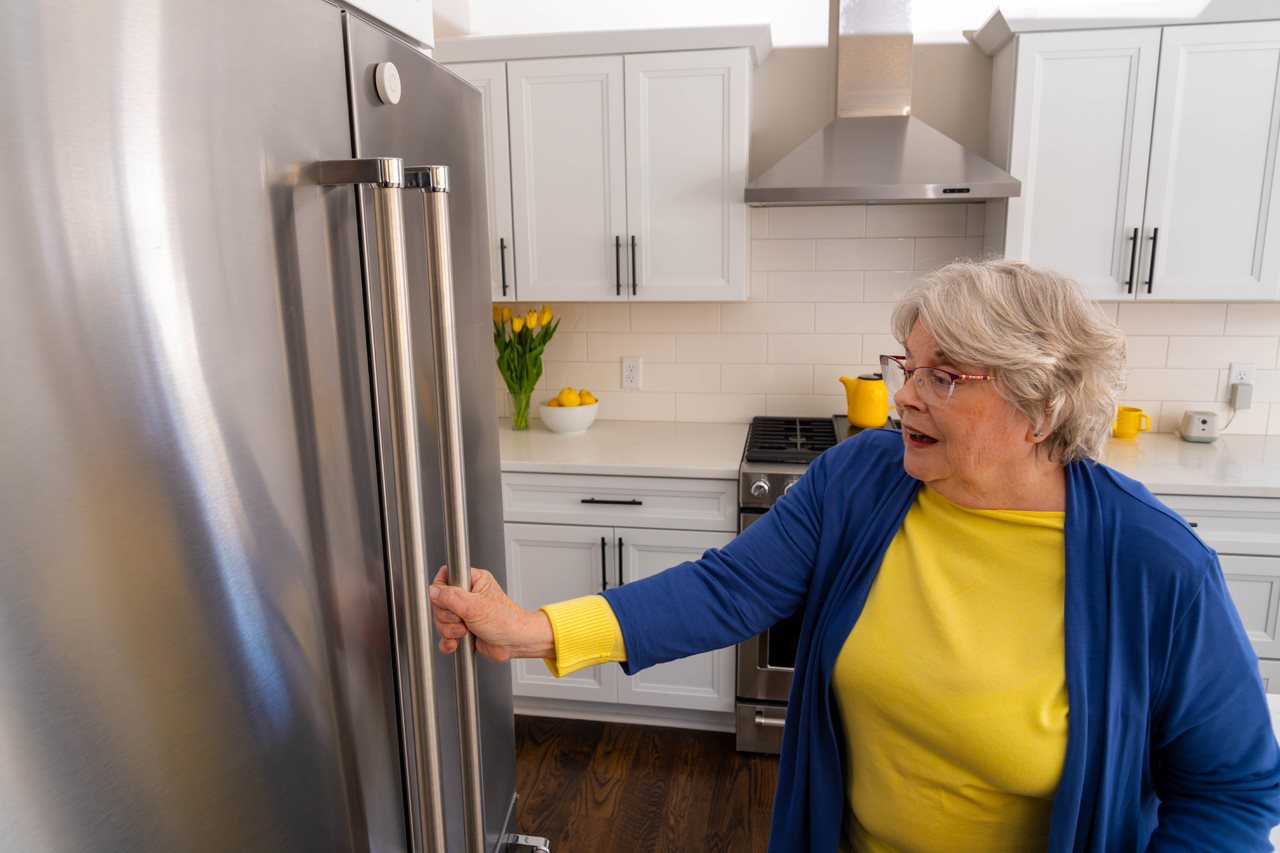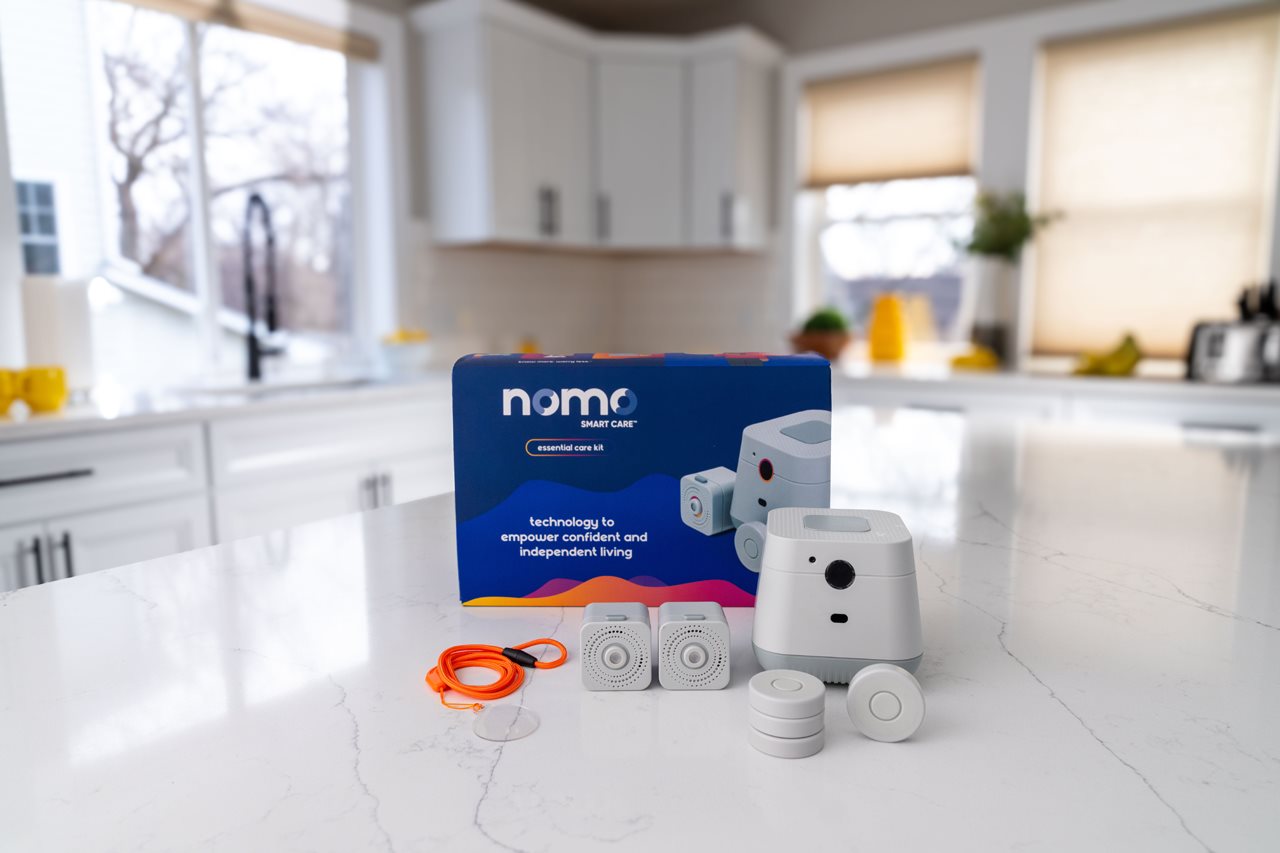(BPT) - As your mother ages, it's natural to start thinking about where she'll live out her golden years. Don't be surprised if she decides to stay put instead of moving.
Over the last 20 years, more and more older adults are living in traditional housing. The trend is called 'age in place.' A recent survey found that 92% of older adults prefer to live out their later years in their current home instead of a care facility or other assisted living housing.
Aging in place and living independently for as long as possible provides several benefits for older adults. According to the Cleveland Clinic, aging in place can preserve independence, reduce health care expenses, provide consistency (which lessens confusion for people with memory issues) and helps aging adults maintain their support networks. More importantly, Mom gets to stay in a place where she's built a life and created beautiful memories, providing a sense of security and emotional well-being.
Of course, there are challenges to aging in place. Namely, the risk of falling.
A balancing act

As you begin a conversation about aging in place, you'll have to balance protecting your mom with preserving her privacy. Both are important especially as risks, like falls, increase.
The Centers for Disease Control and Prevention (CDC) estimates that one in four adults 65 and over fall each year in the U.S. While this can happen to anyone, women fall more often than men, accounting for three-quarters of all hip fractures.
Accidents happen, but some factors can increase your mother's fall risk. For example, the National Council on Aging found that medications like antidepressants or anti-anxiety drugs can affect a person's balance, and antipsychotics can increase dizziness and confusion, which can lead to a fall.
When an older adult falls, it can cause more than just a bruise. According to the CDC, one in five falls cause broken bones, head injury or other serious injuries. Not only are these falls scary and potentially life-threatening, but falling once doubles a person's chances of falling again.
Caregiving crisis
To safeguard your mother's desire for independence, while prioritizing her safety, you'll need to address her care. Even if your mother is currently diligent about keeping you up to date with her care needs that may not always be the case.
As they age, older adults tend to experience a soft decline. They may not notice a decrease in their physical and mental functions. As they age, their functional skills decline. You may not be able to count on your aging parent to self-report accurately, so you'll want to keep a close eye.
However, not every caregiver lives near their aging parents. According to the Family Caregiver Alliance, 5-7 million U.S. caregivers are long-distance, making regular check-ins virtually impossible.
If you live nearby, checking in on your mom is doable, but what about at night or during work hours? Caregiving for a parent can be exhausting, and many family caregivers experience burnout and fatigue.
Whether you live near or far, you could hire a professional caregiver ... assuming you can afford or find one. Due to a combination of factors, including the pandemic, the U.S. is facing a growing nursing shortage, with about 9 nurses per 1,000 people in 2023 compared to almost 12 nurses per 1,000 people in 2021. The shortage will likely continue, considering that 610,388 registered nurses plan to leave the workforce by 2027 due to stress, burnout and retirement.
A new solution for safety, privacy and peace of mind

So, what are your options? Thankfully, new technology has made it possible for older adults to stay home safe and secure. Whether you live across the street, across town or across the state, these tools allow you to check on Mom and her daily activities remotely.
Advances in potential fall detection are making life easier for everyone. Early fall detection systems on the market were limited - only providing information when an event had occurred. These systems were unable to provide a broader view of daily activities that could be indicators of physical decline, including potential fall risks.
The latest systems combine simple movement and motion-sensing technology with the power and the portability of mobile apps. These systems greatly expand the ability to check on a loved one day or night before a fall or to alert of an actual fall.
What about cameras? For older adults who feel cameras are invasive, the choice could be between safety and a sense of privacy. But, technological advances can now capture and report the normal motion of daily activities without cameras.
Nomo Smart Care™ is an affordable, easy-to-install system designed around the idea of normal motion. What is normal motion? It's a person's simple daily routine, like getting out of bed and opening the refrigerator and the medicine cabinet. Changes in Mom's expected normal motion could signal a decline in her health and well-being. Patterns have power. Disruption in normal patterns of behavior can provide early warning of potential problems and open the door to early intervention.
The Nomo Smart Care system is made of three basic components: the hub, satellites and tags. The hub and satellites detect motion. For example, a person moving through a room. The tags report activity in the room. Tags are applied to any surface, like doors and drawers, and report when they move. Because tags detect movement, they can also be set up and worn as a potential fall-detection pendant. All three components work together to create easy and intuitive reports and logs of Mom's motion and movement, day or night, without using cameras.
Using the free-to-download app, an unlimited number of family members and caregivers can check on normal motion in real time. Mom didn't open the medicine cabinet? No movement in the kitchen this morning? The user can also set triggers to be alerted when some activities occur or when expected activities don't occur. If needed, the system can alert caregivers of an emergency and provide seamless connection to 9-1-1 services.
Keep your mom happy at home
Statistics point to the broader need for simple, effective solutions in the face of a groundswell of age-in-place parents. Technology can help. Cutting-edge systems like Nomo Smart Care are helping provide both independence and comfort for older family members who want to stay in their homes, and peace of mind for the caregivers who are supporting them. Visit NomoSmartCare.com to learn more.